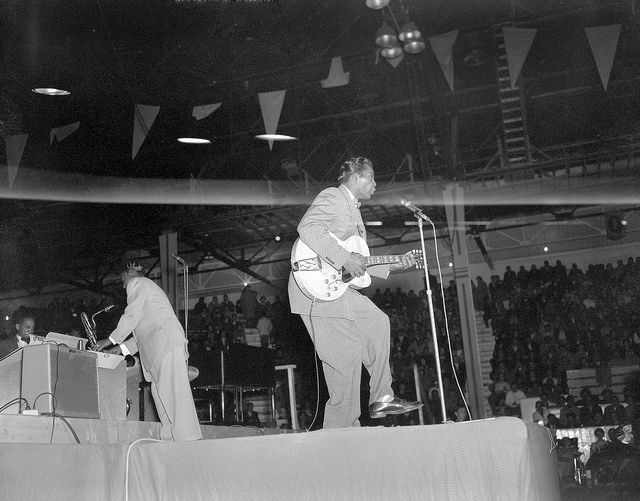The problems behind whitewashing music
From the beginning of the twentieth century, new genres of music such as swing, soul, jazz, rap and R&B began to emerge, with black musicians at the forefront of their creation. However, over the course of the development of these music genres, white musicians have appropriated styles from black musicians and became more popular as a result, significantly with Elvis Presley’s appropriation of the music of Chuck Berry. Alongside this, magazines and popular culture in the past underplayed the role that black musicians had in creating music. This has been carried on to today, with Eminem hailed as the ‘King of Rap’, and Justin Timberlake seen to be the ‘King of R&B’.
We can trace the starting point of music genres whitewashing to the 1930s, when a white man named Benny Goodman was hailed as the ‘King of Swing’. This continued into the 1950s with Elvis Presley, and the lack of attention paid to black musicians who were responsible for creating the genre of Rock and Roll. More recently, the origins of hip hop, rap and R&B music lie in the segregation of the American population and the poor quality of life that the majority of its black population have had, and continue to have, as a result of widespread racism in the US. This has moulded and shaped these genres, particularly the stylistic qualities of rap, adding an element of political commentary to the lyricism of musicians like Ms Lauryn Hill, 2pac and Kendrick Lamar.
We need to acknowledge the importance of systematic racism, oppression and the musical genius of people of colour
Although the wide genre of hip hop cannot be reduced purely to political commentary – it has many other distinguishing qualities – the role of racism and reactions to racism play a crucial role in the development of these genres, and this therefore needs to be credited. Though Eminem has been discriminated against as a member of the American white working class, this is surely incomparable to the discrimination faced by African Americans. Therefore, it seems far-fetched to be labelling him the ‘King of Rap’ or the ‘King of Hip Hop’, since this overlooks the role ethnicity plays in the formation of these genres.
This is something we should not forget. It is so important in a world where people of colour are discriminated against and their cultural achievements are diminished. In a world that thinks black rap artists incite criminal activity, it is crucial we remember the significance of people of colour in the creation of distinguished music genres. By calling people of colour the Kings and Queens of different genres, we will begin to eradicate whitewashing from the music industry, and instead acknowledge the cultural contribution that people of colour have made. Just a small change in attitude could radically alter the way in which these genres are remembered in the future; acknowledging the importance of systematic racism, oppression, and most importantly, the musical genius of people of colour, is sufficient.

Comments (1)